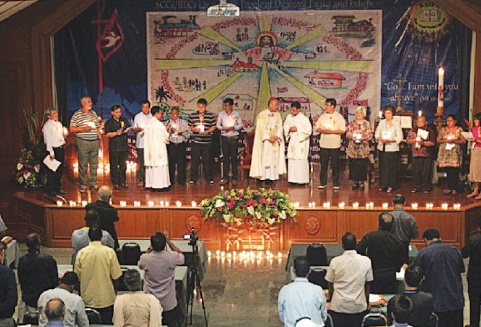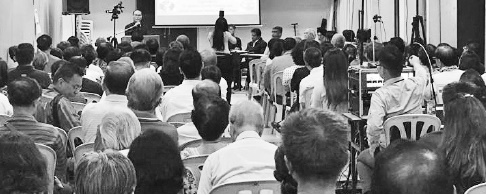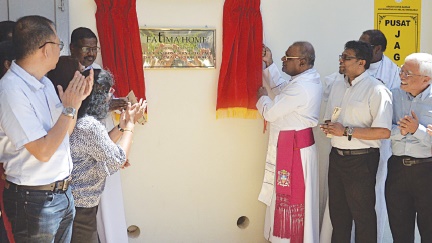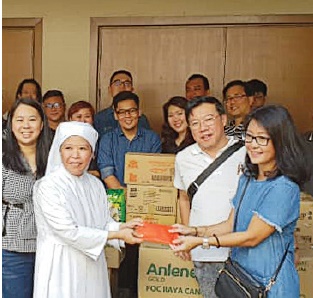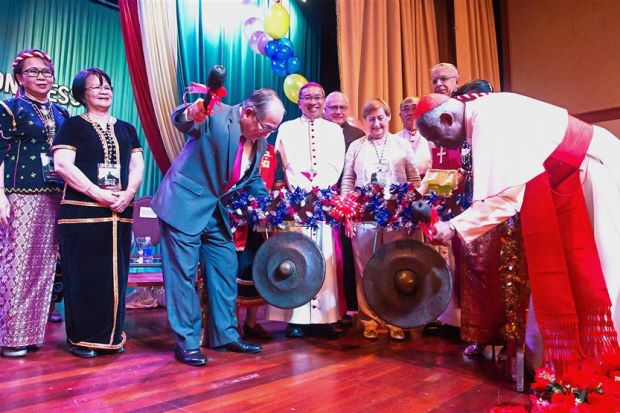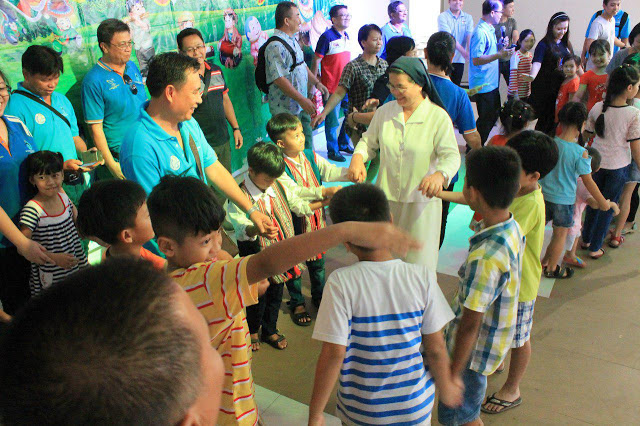Malaysia
It was represented by:
1. Kevin Chung from the Archdiocese of Kuala Lumpur
2. Sr Sagaya Mary Joseph from the Penang Diocese
3. Sebaestiammal Rina from the Penang Diocese
The representatives from Malaysia will propose to their dioceses to look into these following areas:
1) To explore the use of various Gospel Sharing methods with the aim to encourage BEC members to be more active in the sharing of the Word of God.
2) To continue to raise awareness and provide guidance for BECs to engage in interreligious dialogue
3) To provide on-going formation on spirituality and facilitating skills for the BEC coordinators.
India
Recognising the fact that Jesus Christ Jayanti (Jubilee) 2000 supports the formation of BECs as a pastoral priority for the Church in India and keeping in mind the significant progress achieved so far, we propose the following:
1. To promote and assist in the formation of Diocesan Animation Teams in all the dioceses.
2. To develop appropriate formation programmes, modules for priests, religious and bishops for the concept of the New Way of Being Church and its implementation
3. To promote suitable formation programmes for Seminarians and Novices in all formation houses to enable them to take up leadership roles in the model of NWBC as they start their ministries after their ordinations and professions.
4. To promote awareness on inter Religious Dialogue and collaboration with people of other faiths with the long term objective of rnoving on to BEC. We propose these objectives to the National Service Team (NST) for BECs in India for their consideration to draw appropriate Action Plans for the Dioceses of India.
Indonesia
The Objectives for the next three years : Diocese of Tanjungkarang :
1. Report to the Bishop about the AsIPA GA VII
2. If the Bishop decides to start AsIPA Pregramme, then the plan to introduce and to promote AsIPA and BECs be set up soon for some selected parishes and among priests
3. Promoting AsIPA Programme in cooperation with Pangkalpinang
Diocese Diocese of Pangkalpinang :
1. Reinforce the 7 Steps Gospel Sharing and initiate Group Response and Look-Listen-Love method
2. Raise awareness of BECs on Inter-religious Dialogue
3. Introduce the AsIPA method to all BECs in all parishes around the diocese
4. Have more skilled, faithful and humble leaders and facilitators Specific
Action to realise the objectives :
1. Strengthen the animation team with refresh programme at Vicariate and Parish level
2. Prepare and produce materials and modules to be used during the sessions of getting the objectives realised.
Korea
1. We have a national gathering of BECs every year
2. To promote BECs we will meet more people and parishes
3. We find the AsIPA Texts very effective so we will make efforts to translate them.
4. We will use other methods of Gospel sharing
5 We will collaborate more using IRD Texts
6. We find it difficult to sustain our training and developing resources so we are planning to establish a kind of BEC centre or Institute for sustainable support.
Article reproduced from Herald Malaysia online



